Research news
-
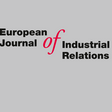
Social partners’ influence on job quality in care in Denmark and the Netherlands
2026.01.29 -
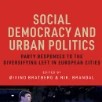
Urban labour markets and trade unions
2026.01.16 -
Mapping Green Skills in Collective Skill Formation Systems
2025.11.14 -

Union democracy from below: Grassroots use of digital platforms renew trade unions
2025.10.08 -
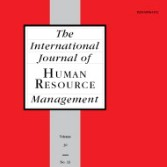
Highly skilled migrants contribute with tacit skills important for multiple organizational processes
2025.10.08 -

Can organizing and collective bargaining coverage alleviate recruitment problems?
2025.09.24 -

Growth Strategies and Welfare Reforms in Denmark
2025.09.02 -

Working time patterns on digital platforms
2025.08.28 -

Bargaining coverage in FinTech
2025.08.28 -
Implementation and enforcement of labour clauses
2025.06.27 -

New head of FAOS
2025.06.18 -
Conflict and coordination in the cost-of-living crisis
2025.06.12 -

Implementation of the revised Posting of Workers Directive in EU member states
2025.06.12 -

FAOS is hiring two new Postdocs
2025.06.02 -
Vertical New Knowledge Transfer and the Revival of Multi‐Employer Collective Bargaining
2025.04.09 -

Social media, democracy, and the labour movement: How battles for control on Facebook affect unions
2025.03.28 -

Non-Standard Employment and Unemployment Protection in Europe
2025.02.18 -

Workers with few hours – who secures their social rights?
2024.11.13 -
The Strategic Choice of a Trade Union during the 2019 GM–UAW Strike and Member Satisfaction
2024.11.04 -
Integrating ecosocial policies through polycentric governance
2024.10.30 -

Securing living hours among part-time workers in hotels and restaurants in Northern Europe
2024.10.30 -
Social Partner Responses to AI in Denmark and Sweden
2024.10.30 -

The trade union representatives and collaboration over three decades
2024.08.08 -

Workers, power and society - Power resource theory in contemporary capitalism
2024.08.07 -

Driving the EU working conditions directive: social partner reactivity and the limits to commission entrepreneurship
2024.06.04 -
Arrangers and orchestrators: the diverging role of the state in Danish and German vocational education and training
2024.04.17 -

Research on the Danish labour market can continue with new five-year grant
2024.03.21 -

Between coping and resistance: Migrant networks and alternative forms of collectivism
2024.03.12 -

Is labour migration disrupting dual vocational education and training systems?
2024.01.17 -

The new political economy of public sector wage-setting in Europe
2024.01.12 -

Enforcement of labour clauses by public authorities
2024.01.04 -

Script Adaptation: Understanding Continuity in Local Cooperation after Sector-Level Conflict over Teachers’ Working Time
2023.12.13 -
Do you find work using an app or an online platform?
2023.11.20 -

Working conditions in aviation: How aviation tackled the COVID-19 crisis
2023.11.08 -

Still part of the game—corporatism and political exchanges in two small states
2023.10.06 -
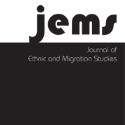
Posted work as an extreme case of hierarchised mobility
2023.09.08 -

Revisiting the EU’s new mobility regime
2023.09.08 -

Social dialogue in times of crisis
2023.08.30 -

Public sector wage bargaining and the balanced growth model: Denmark and Sweden compared
2023.08.09 -

Solidarity with atypical workers? Survey evidence from the General Motors versus United Auto Workers strike in 2019
2023.08.09 -

Digital disruption diversified—FinTechs and the emergence of a coopetitive market ecosystem
2023.08.09 -

Flexicurity and the future of work - Lessons from Denmark
2023.06.30 -

Conditions for cross-professional union coalition-building: When enough is enough, but solidarity also has its limits!
2023.06.12 -
Early Childhood Education and Care in Denmark: A Social Investment Success
2023.03.31 -

Unions and precarious work: How power resources shape diverse strategies and outcomes
2023.03.31 -

It takes two to code: a comparative analysis of collective bargaining and artificial intelligencegence
2023.03.16 -

Labour Migration as a Source of Institutional Change: Danish and Australian Construction Sectors Compared
2023.02.13 -

Strategic human resource management in the context of environmental crises: A COVID-19 test
2023.02.13 -
FAOS research article wins international recognition
2023.01.25 -

Social dialogue in welfare services
2023.01.18 -

Business and welfare policies
2023.01.03 -

Nordic Relief Packages and Non-standard Workers: Towards Expanded Universalism and Institutional Inequalities
2022.12.14 -

Do Workers Speak Up When Feeling Job Insecure? Examining Workers’ Response to Precarity During the COVID-19 Pandemic
2022.12.07 -

Postdoctoral researcher position working on two new survey projects on welfare and the future of work
2022.12.05 -

Mobilization and collective bargaining on Facebook
2022.11.30 -

Playing alone? Interest representation in the videogame industry in Denmark, Italy and the Netherlands
2022.11.22 -

Tripartite agreements helped Denmark through the pandemic
2022.10.25 -
Still a poster child for social investment?
2022.09.26 -

Diverging logics of firm cooperation in Denmark and Sweden
2022.09.01 -

Hybrid Work Patterns: A Latent Class Analysis of Platform Workers in Denmark
2022.08.18 -

Labour Market Affiliation of Marginal Part-Time Workers in Denmark — A Longitudinal Study
2022.08.16 -
Varieties of organised decentralisation acrosssectors in Denmark: A company perspective
2022.06.01 -

Project about incorporation of foreign workers receives large grant
2022.05.10 -
Nordic models in the platform economy
2022.04.25 -

FinTech and trade unions
2022.04.20 -
The embedded flexibility of Nordic labour market models under pressure from EU-induced dualisation
2022.03.24 -
Ideas and power in employment relations studies
2022.02.14 -

Innovative union services and non-standard workers in Denmark
2022.01.21 -

Professor emeritus Jesper Due has passed away
2021.12.29 -

Why do labour platforms negotiate?
2021.11.17 -
Three dimensions of institutional contention
2021.10.19 -
Marginal part-timers experience poorer health and safety than full time workers
2021.08.23 -

New frontiers of unionization and innovative services
2021.06.25 -

Skills for the Future? A Life Cycle Perspective on Systems of Vocational Education and Training
2021.06.08 -

FAOS researcher wins award
2021.05.10 -
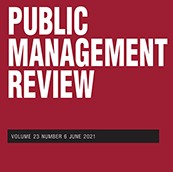
The influence of regulative contents, stakeholders, and formalization on managerial autonomy perceived at the front line
2021.05.10 -
Non-standard work in the Nordics: troubled waters under the still surface
2021.02.26 -
When inclusive measures expose cracks: The Nordic Social Protection in times of crisis
2021.02.25 -

Multiple jobholding in the digital platform economy: signs of segmentation
2021.02.25 -

Quiet Politics and the Power of Business
2021.02.23 -
Social Democratic Trade Unions in the Knowledge Economy: Challenges, Pathways and Dilemmas
2021.02.10 -

Commission entrepreneurship and EU employment policy – The fate of a former darling
2020.10.27 -

The coronavirus crisis reveals blind spots in Nordic labour market data
2020.10.06 -
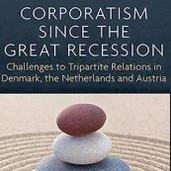
Tripartite relations since the Great Recession – Three countries compared
2020.09.23 -
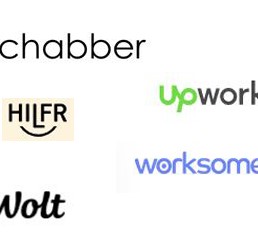
The digital economy at work – integration and segmentation in hybrid labour markets
2020.09.21 -

Collective agreements for platforms and workers
2020.06.08 -

Digital platforms at work. Champagne or cocktail of risks?
2020.06.08 -

Social partner responses in the Nordic platform economy
2020.06.08 -

The work-life balance directive: Towards a gender equalizing EU regulatory welfare state?
2020.05.19 -

Moving In and Out of the Shadow of European Case Law: the Dynamics of Public Procurement in the Post‐Post‐Rüffert Era
2020.05.14 -

The Hilfr agreement - negotiating the platform economy in Denmark
2020.03.23 -
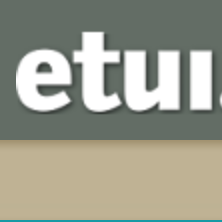
Working under pressure
2020.03.20 -

Personal Household Service Quality project
2020.02.20 -

Posted Work in the European Union - The Political Economy of Free Movement
2019.12.09 -

Good intentions meet harsh realities: Social dialogue and precarious work in industrial cleaning
2019.11.01 -

Expats and the firms they work in
2019.02.12 -
The effects of union mergers and internal restructuring: a bottom-up perspective by Danish shop stewards
2018.10.12 -
A division of labour? Labour market segmentation by region of origin
2018.09.25 -

Dealing with austerity and migration in the northern European cleaning sector
2018.08.23 -

Collective wage bargaining under strain in northern European construction
2018.08.07
